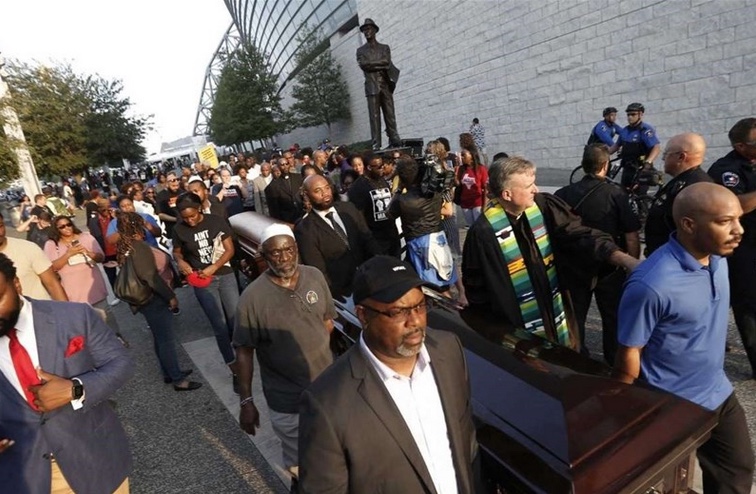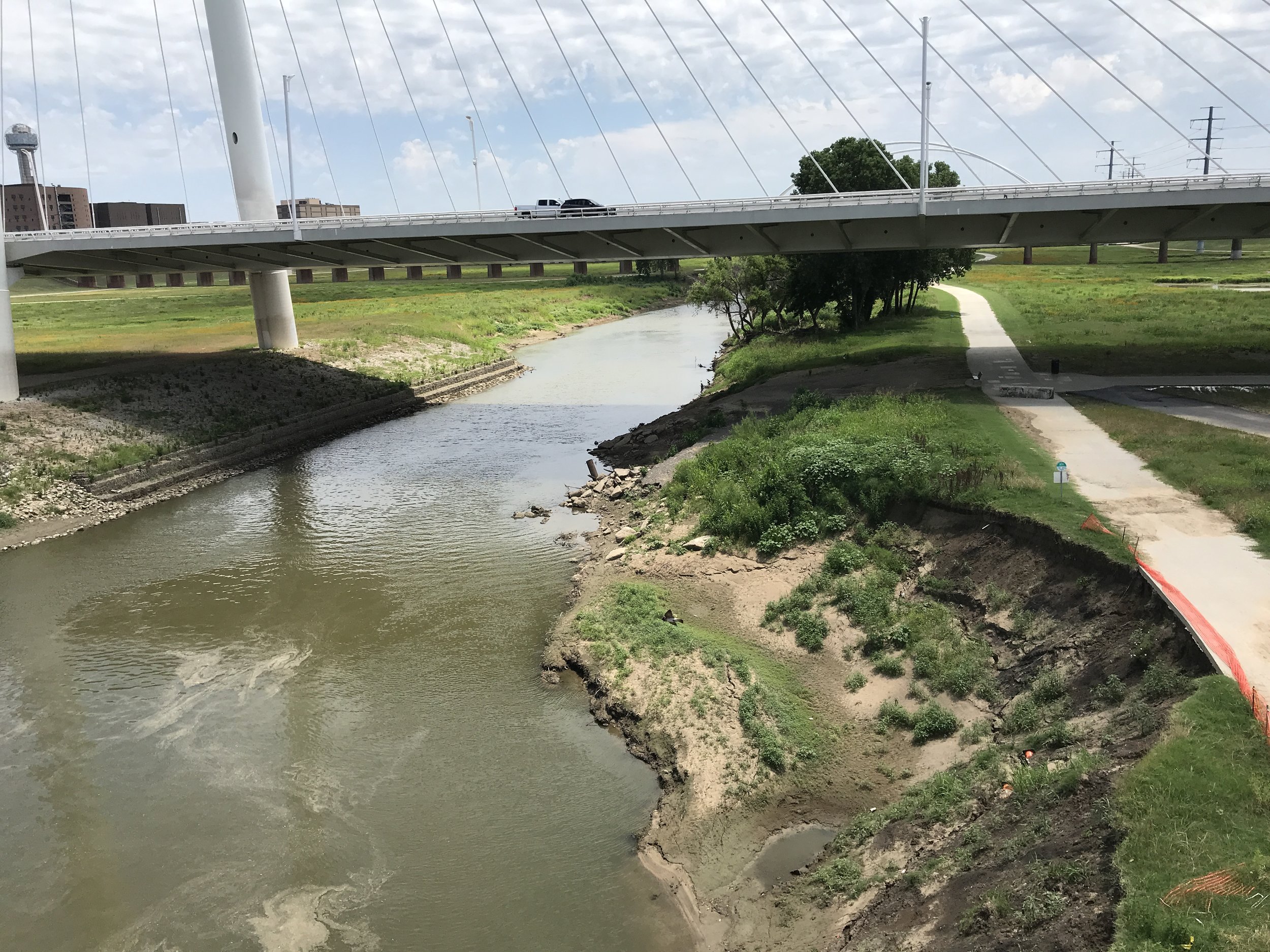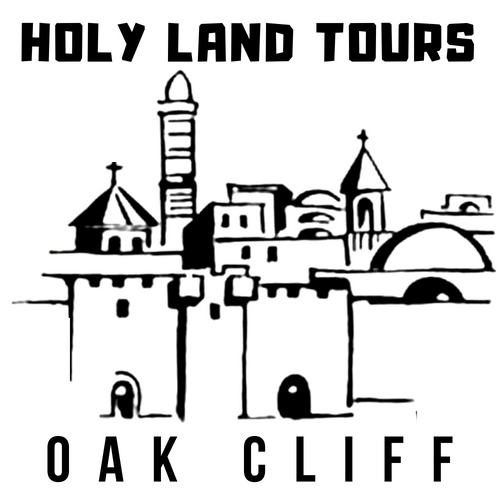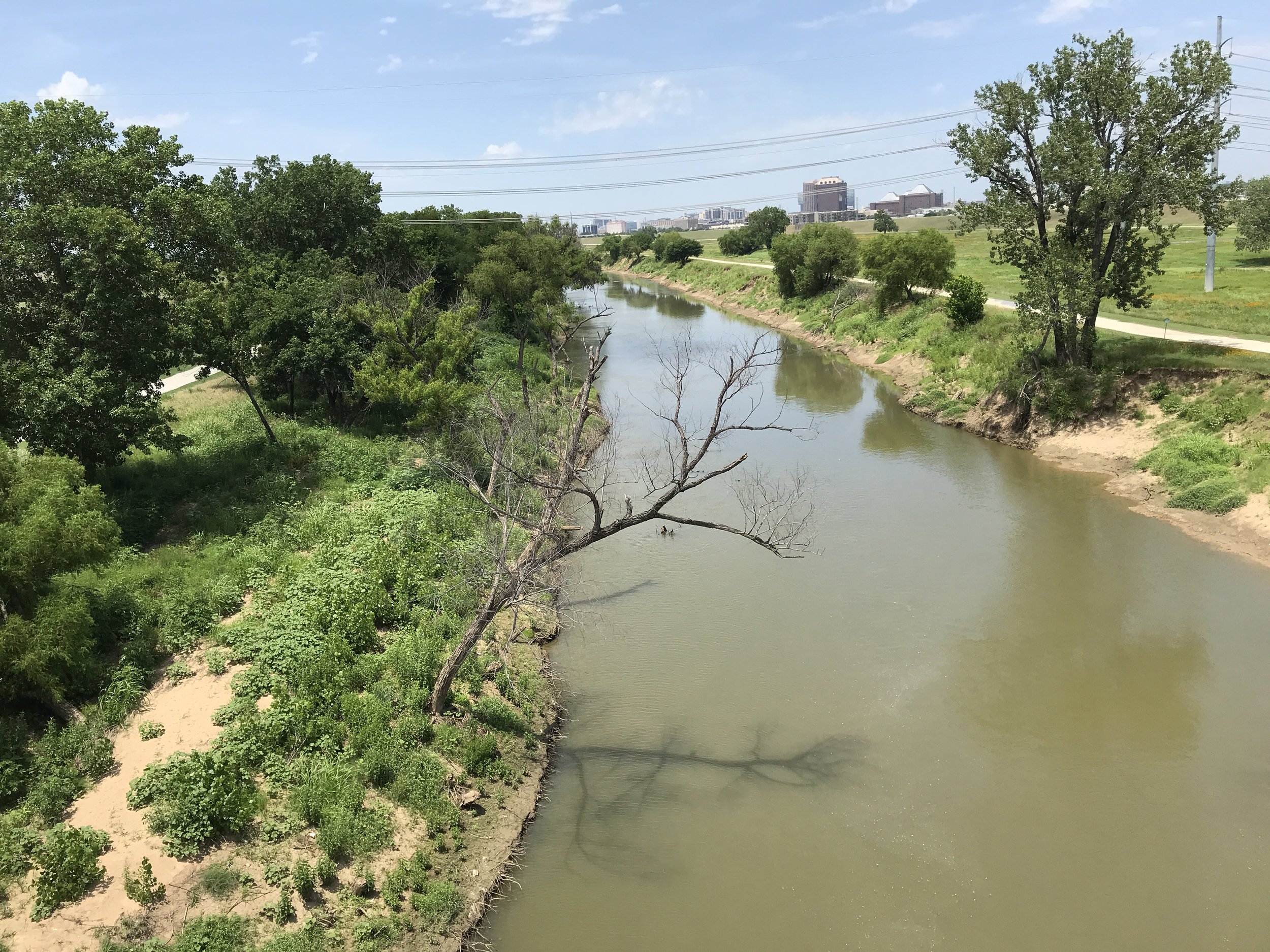My Useless Protest
/Some of you might have caught a glimpse of me on the ten o’clock news on Sunday night. I took part in a demonstration outside of Cowboys Stadium with conducted a mock funeral in honor of two men recently killed by police officers — Botham Jean and O’shea Terry.
We wheeled two caskets up to the stadium. I was one of the pallbearers, dressed in my clergy robe and stole, along with a number of other pastors. A crowd of laypeople followed as mourners.
My friend, Rev. Dr. Michael Waters of Joy Tabernacle AME opened the service and gave several pastors an opportunity to pray, including Imam Omar Suleiman, another friend. Rev. Freddy Haynes of Friendship West Baptist Church gave the eulogy. Then we knelt in defiance of Jerry Jones’ insistence that his players always stand during the singing of the National Anthem. And then we left, as quietly as we arrived.
While at the stadium, I texted a longtime friend of mine. He’s always amused at my rabble-rousing. Here’s how part of our brief exchange went on Sunday evening:
Me: I might get arrested tonight.
Him: Why this time?
Me: (sent two photos of our procession)
Him: Useless protest
Useless protest?
I understand his complaint. If we measured street protests by the visible and discernible effects of such displays, then we might conclude that most protests are useless. And our little march on Sunday night was useless, in the sense that I doubt Jerry Jones was even aware of our presence. I am quite sure that neither Mayor Mike Rawlings nor Police Chief Renee Hall will make any decisions as a direct result of that event. I am not convinced that it will have any impact on the rapidly unfolding events in the Botham Jean investigation.
I can look back on a lifetime of showing up for protests and seeing very little results. After all, I remember marching against the very first Iraq war, back in 1990 in downtown Los Angeles. We went to war anyway.
Then again I marched in the gigantic downtown Dallas protest against President George W. Bush’s Iraq war many years later. That time, I was convinced that we could actually prevent the coming invasion. We went to war anyway.
I have appeared at various immigration rallies, against the Muslim ban and against family separation. Nothing has changed. I marched in the recent student march against gun violence, and even led a prayer vigil outside of the NRA convention this past summer. Nothing has changed.
So yes, protests and marches are “useless” if you’re looking for a quick result. They are a waste of a perfectly good evening if you want an immediate change.
I had to think seriously about whether I wanted to spend my Sunday evening outside of the stadium, or on my couch watching the game.
Yet showing up in the streets is not simply about forcing results. Protest is a complex animal. There are many good reasons to march in the streets. One reason I attended the Botham Jean protest was to show solidarity with African-American clergy. Police brutality affects their constituents much more directly than mine; when the shooting of an unarmed black man occurs, it is an existential crisis in their communities, not mine.
I am also acutely aware that, when a police officer shoots and kills an innocent victim, white folks are far more likely to trust the criminal justice process. African Americans and Hispanics feel quite differently. Their history has taught them to be wary of the process. I don’t understand this suspicion, so I try to put myself into situations where I can feel it for myself.
After spending time talking to the attorney for Jean’s family, and some of the clergy at the march, there are significant questions about the police department’s handling of the case. It’s clear that some media outlets in town were complicit with the police in releasing information about Botham Jean that would tarnish his reputation on the same day that his life was being mourned by hundreds of friends and family. My black colleagues taught me that this is common in these situations: “First, they kill the body. Then they kill the name.”
After the march, we all went home. Nothing changed.
Yet everything changed. I came home different. I came home with a new empathy and sensitivity for the situation of the African-American community in today’s America.
Let’s also recognize that thousands of people witnessed the weird sight of pastors pushing two caskets through the parking lot outside Cowboys Stadium. I anticipated that we might receive some hateful stares, rude gestures, or even some shouted curses.
Instead, people seemed to stop and stare reverently. Lots of people pulled out their phones to record the event. Some raised their fists in solidarity. Others said, “Thank you!” and “Amen!” They seemed to understand, if only momentarily, that there are some things going on in Dallas that are more important than a football game.
The action was seen by a larger group than even the fans who were present; video of the march was shared on social media, most of the local news stations covered it, and I can’t help but think that some people were talking about it around the water cooler this morning.
Then again, maybe it doesn’t really matter if it was “useful” or not. There is something valuable simply in the fact that it happened. A good protest is like a ritual; the value of it lies largely in doing it. It is a performed action, and it doesn’t depend on how many people participate in it.
A good protest is like Holy Communion, which is one of the most “useless” things we do. Think about it — we take a little crumb of bread, which doesn’t actually satisfy any part of our appetite, and we drink a few drops of grape juice, which is hardly enough to wet our throats. We’re supposed to believe that Christ is present, but there’s never any visible evidence that he actually shows up. And nothing changes because we’ve taken Communion; the world is still evil and broken. If an outsider were observing a Communion service, she might say, “Well, that was pointless.”
But you and I wouldn’t say that, would we? Because we participate in it. We eat the bread and drink the cup. We act in faith. We know in that holy moment that nothing changes … and yet everything changes.
That’s how I feel about Sunday night. It was glorious.






